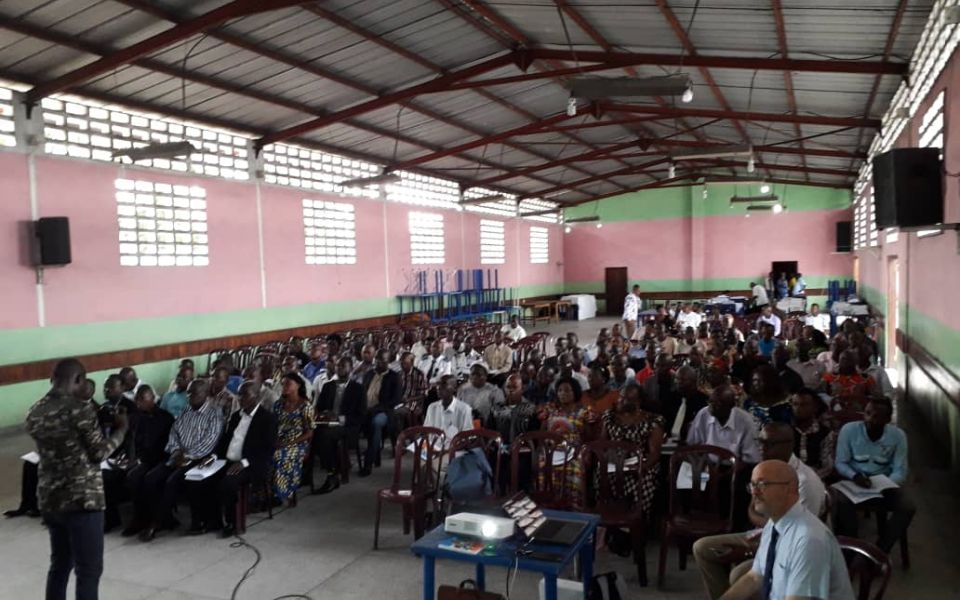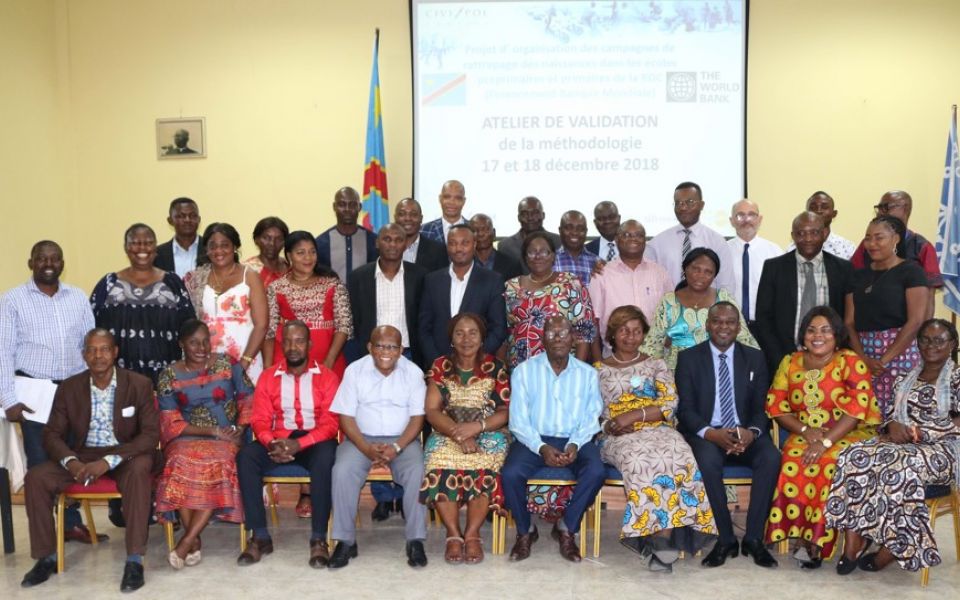Organisation of campaigns to catch up on the registration of births of children registered in schools and their siblings
Civil status is one of the most fundamental services in a country. Its importance is manifested both individually and collectively. At the individual level, it entitles the child to be recognized as a member of a community and family and establishes the bond of belonging to a nation. At the collective level, it allows the State to plan socio-economic development projects and revise the electoral register as well as update the population register. Despite legislation promoting birth registration, only 25% of children are registered in the civil registry. The primary school attendance rate is high (80%) and allows for an effective approach to catch up on birth registrations through schools.
Presentation
Since June 2018, CIVIPOL has been involved in a project to organize campaigns to catch up on the birth registration of 2.4 million children enrolled in schools, as well as their siblings. This 30-month project is funded by the Fragile States Financing Unit (CFEF) and the World Bank in support of the Congolese government. The priority objective is to give a civil status to all children enrolled in schools and their siblings within three years.
Objectives and activities carried out
CIVIPOL is collaborating for this project with CARITAS DRC, UNFPA, DIGITECH, IDEMIA and TRANSTEC to assist the Ministry of Interior and Security, the Ministry of Justice and the Ministry of Primary, Secondary and Professional Education (EPSP) with:
- A pilot catch-up campaign with the registration of children and siblings enrolled in schools in Kinshasa province, and then extend this objective to all provinces of the country
- Children are registered in a centralized database for tracking cases, including assigning a unique number and updating them
- The methods and means used within the project serve as a basis for the Congolese government to set up a national civil status system
- This system is digitized using innovative techniques such as biometrics.
The project in figures
USD14.5m
Budget
8
Mobilized experts
2,4 million
Benefits children
Chronology
-
29 June 2018
Start of the project
-
June 2019
Pilot phase in Kinshasa Province
-
September 2019
Scaling up to all provinces
-
31 December 2020
About the project
Project status
In progress
Funding type
World Bank
Contract type

